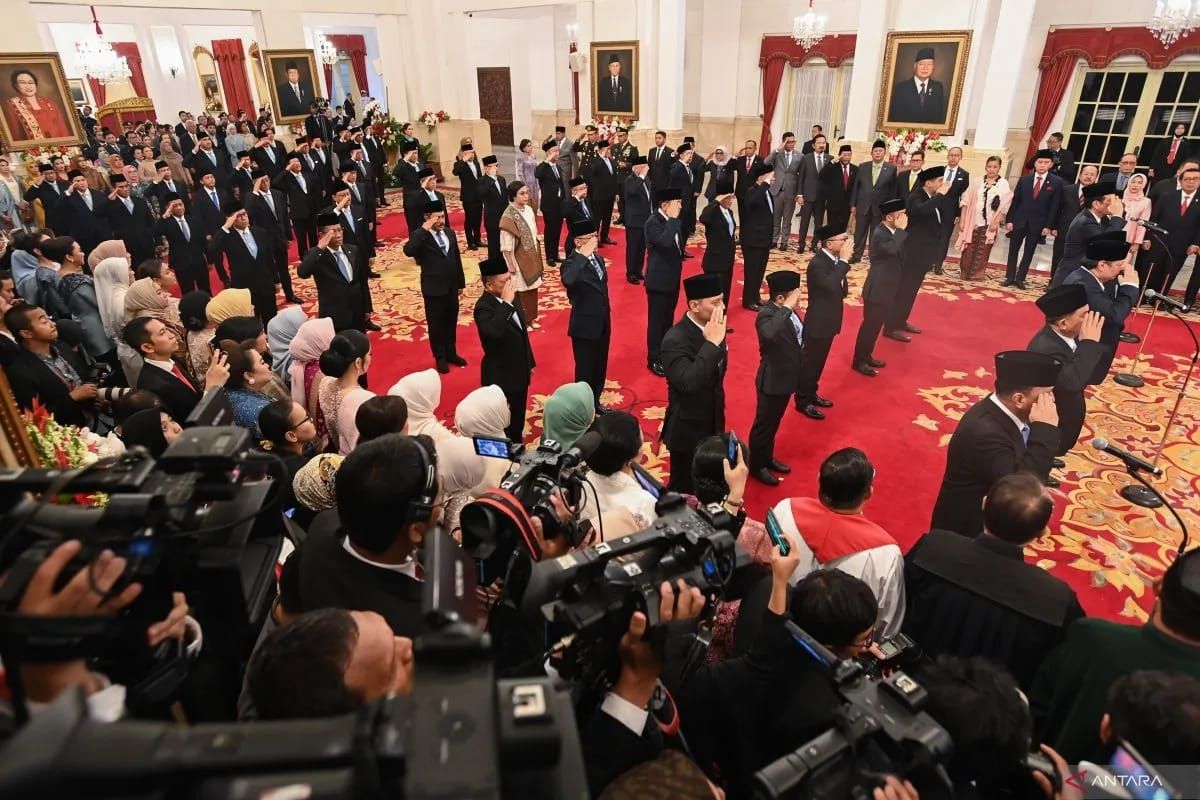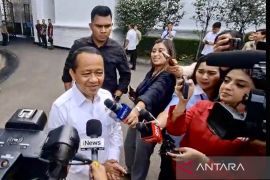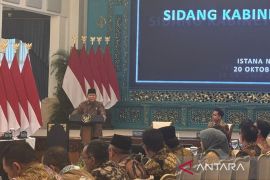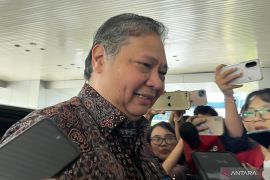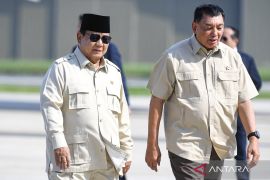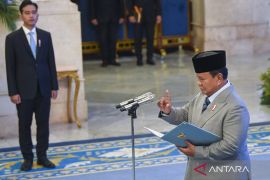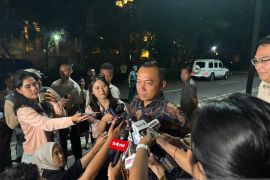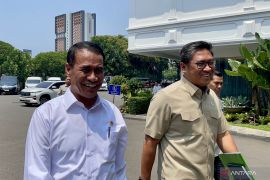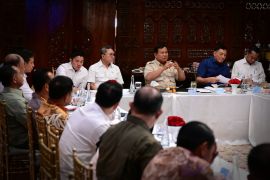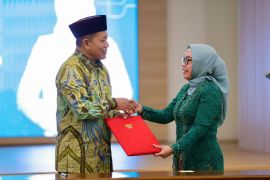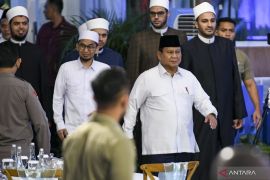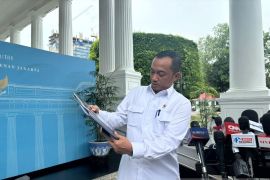During his tenure, President Prabowo Subianto decided to implement a budget efficiency policy aimed at streamlining state spending, reducing waste, and strengthening fiscal foundations.
However, he formed a cabinet with additional ministries larger than the previous government's, resulting in bigger state budget spending. This choice was not in line with his efforts to promote efficiency.
In economics, efficiency is often seen as a reflection of healthy governance. A carefully designed budget reflects fiscal rigor and responsibility, avoiding waste and ensuring that every dime spent provides maximum benefits to the community.
The budget efficiency commitment was set to demonstrate the government’s dedication to prudent financial management, particularly in light of post-pandemic uncertainties, the energy crises, and lingering geopolitical tensions.
However, the enormous cabinet formation is unmatched to the efficiency initiation.
On October 21, 2024, the president announced the formation of the Red and White Cabinet, comprising 48 ministers, five agency heads, and 59 deputy ministers, bringing the total to 112 officials, making it one of the largest cabinets in Indonesian history.
Prabowo's goal of saving Rp306 trillion (USD18 billion) from the state budget is being undermined by the cabinet members' expenses. These expenses are considered to hinder efforts to improve budget efficiency.
Measures to achieve efficiency include cutting travel budgets, reducing office stationery by up to 90 percent, and canceling non-essential programs.
Budget Cuts
The Ministry of Primary and Secondary Education is one of the ministries significantly impacted by the efficiency policy, experiencing a budget cut of Rp8 trillion (USD474 million).
These cuts include a significant reduction in the office stationery post, a move that may appear minor but could potentially affect the day-to-day operations of schools.
The Ministry of Public Works is also facing a budget cut of more than 70 percent, leading to the cancellation of infrastructure projects, such as toll roads and dams.
Minister of Public Works Dody Hanggodo is scraping a way out to saving and shifting budget allocation to four sectors of public works infrastructure development this year, following a Rp81 trillion (USD4.8 billion) budget cut from the previous allocation of Rp110 trillion (USD6.5 billion).
The four priorities are water resources, with a budget of Rp10 trillion (USD594 million); roads and bridges, Rp12 trillion (USD742 million); building construction, Rp3.78 trillion (USD224 million); and strategic infrastructure, Rp1.16 trillion (USD69 million), leaving other infrastructure projects unattended this year.
This is where the policy paradox arises. While ministries, such as education and public works, have to deal with strict budget cuts, other strategic ministries have not encountered similar reductions, and some have even received additional funding allocations.
This situation highlights an urgent need for balanced efforts in implementing budget efficiency. For instance, the Ministry of Defense continues to receive substantial budget allocations in line with the government's commitment to strengthening the national defense sector.
Compared to countries such as Germany or New Zealand, they have managed effective governance with a lean cabinet structure.
Germany, the largest economy in Europe, has a cabinet that prioritizes strategic ministries, minimizes bureaucracy, and emphasizes efficiency in every line of government.
Meanwhile, New Zealand, with a more focused approach to data-based public policy and transparency, demonstrates that bureaucratic efficiency not only conserves budget resources but also boosts public trust.
This comparative study indicates that the size of the cabinet is not the primary factor influencing government effectiveness, but rather, it is how each ministry operates efficiently and aligns with the national vision.
In Indonesia, forming a large cabinet inevitably increases operating costs, including official salaries and supporting budgets for ministry activities.
Amid budget efficiency, fund allocation for large government structures can erode potential savings from budget cuts in other sectors.
Bureaucratic Costs
Some analysts believe that Prabowo's budget efficiency policy will not be fully effective if the cabinet structure remains large. The enormous bureaucratic costs can offset or even exceed the savings generated from cuts in other budget items.
From an economic perspective, budget reductions should be implemented with careful consideration of their effects on economic growth and social welfare.
Non-selective cuts can hinder innovation, worsen the quality of education, or reduce public access to essential services.
An economy analyst from Fine Institute, Kusfiardi, emphasized the importance of transparency and supervision to prevent potential misuse of the budget efficiency policy outlined in Presidential Instruction Number 1 of 2025.
The government must publish details of budget cuts per sector and region to ensure no inequality or political bias in the distribution of budget efficiency.
An independent audit by the Indonesian State Audit Board (BPK) and the Corruption Eradication Commission (KPK) should be conducted to guarantee that efficiency policies are not exploited for ulterior motives.
Meanwhile, the House of Representatives and independent institutions must carry out the monitoring mechanism, along with an impact-based evaluation, not just numerical data.
On the other hand, maintaining budgets for strategic sectors, such as infrastructure, energy, and technology, can fuel economic expansion. However, if carried out without considering social aspects, it can widen the inequality gap.
Prabowo emphasized that the budget cut policy is necessary to reduce waste at the bureaucratic level. He even denounced officials, referring to them as "little kings" in the government who often squandered the budget for personal interests.
However, the public remains skeptical due to the inconsistency between savings and bureaucratic bloat.
An efficient government should be able to provide high-quality public services at a reasonable cost, manage resources wisely, and ensure that every policy offers real benefits to the people.
Prabowo has the opportunity to demonstrate that even a large government structure can be efficient and effective in its operations.
The challenge is maintaining consistency between rhetoric and reality, promises and real actions.
Ultimately, the people will not judge the cabinet's size but the policies' positive impact on their daily lives.
Related news: Budget efficiency: Gov to prevent layoffs of honorarium-paid staff
Related news: President Prabowo inks 47 regulations on ministries, agencies
Editor: Rahmad Nasution
Copyright © ANTARA 2025
